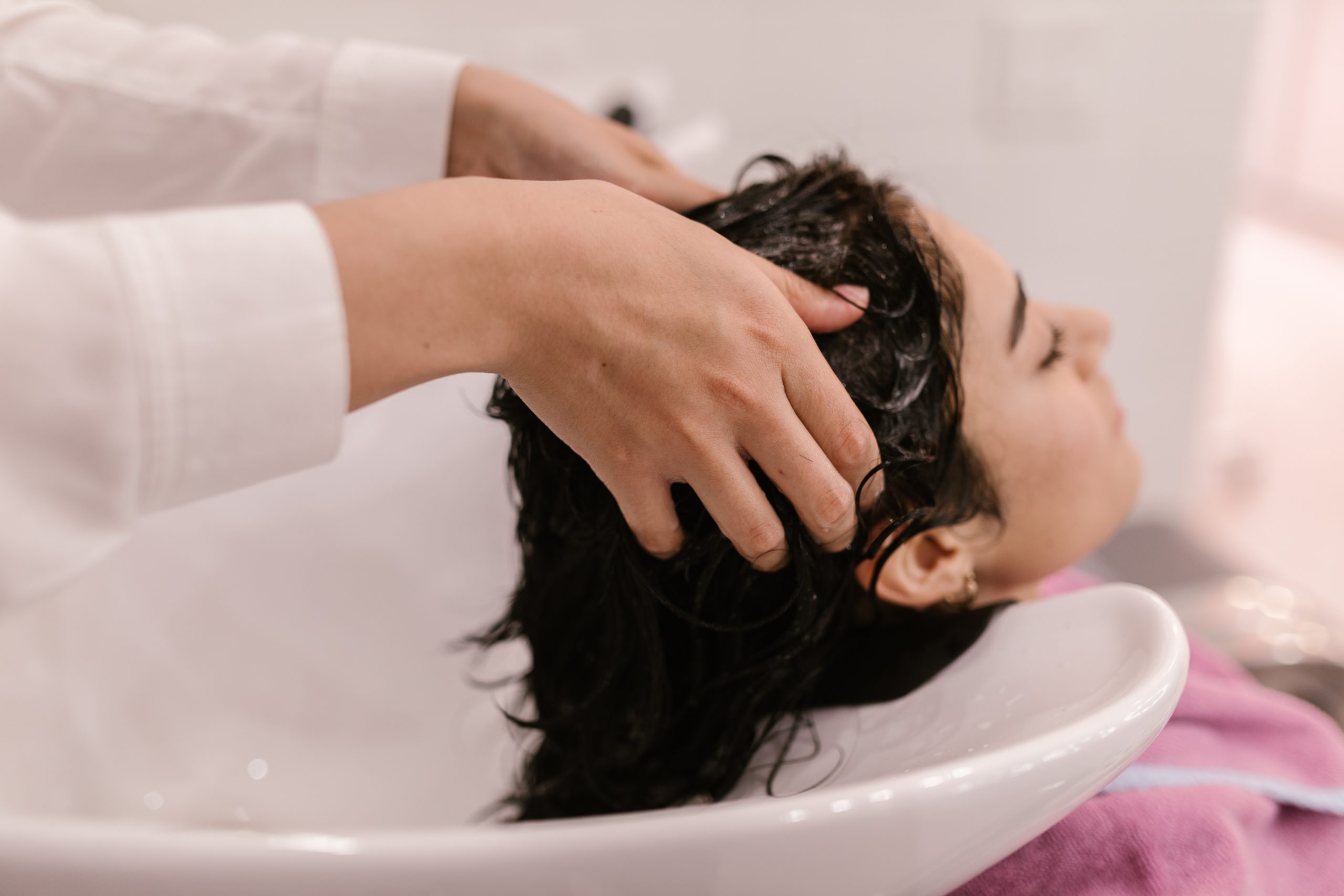First, let’s explore various hair types and lifestyles to help you determine, How often should you wash your hair?
Understanding Hair Types
Before delving into the ideal hair-washing frequency, it’s essential to understand that different hair types have distinct needs. Here are some common hair types and their recommended washing schedules:
- Oily Hair: Individuals with oily hair tend to produce more sebum, which can make hair look greasy quickly. For oily hair types, washing every other day or every two days can help maintain a fresh and clean appearance.
- Normal Hair: Those blessed with normal hair have a balanced level of sebum production. Washing two to three times a week generally suffices to keep normal hair healthy and vibrant.
- Dry Hair: Dry hair lacks moisture and tends to be more prone to damage. Washing dry hair too frequently can strip away natural oils, leading to further dryness. Opt for washing dry hair no more than twice a week, ensuring to use moisturizing shampoos and conditioners.
- Curly or Textured Hair: Curly or textured hair is often drier due to the natural oils having a harder time traveling down the hair shaft. As a result, washing curly hair too often can lead to excessive dryness and frizz. Aim to wash curly hair once a week or every 10 days to retain moisture and enhance natural curl patterns.
- Color-Treated Hair: If you have color-treated hair, you must be mindful of your washing frequency to maintain vibrant and long-lasting color. Washing color-treated hair every two to three days or using dry shampoos in between washes can help preserve color and prevent fading.
Lifestyle Factors
Apart from hair type, lifestyle factors can influence how often you should wash your hair. Consider the following aspects:
- Exercise and Sweat: Regular exercise can cause sweat accumulation on the scalp, leading to a greasy and uncomfortable feeling. If you exercise frequently, washing your hair every other day or after intense workouts is advisable.
- Environmental Factors: Exposure to pollutants, dust, and other environmental factors can make your hair dirtier more quickly. If you live in a polluted area or spend significant time outdoors, washing your hair every two to three days might be necessary to maintain cleanliness.
- Styling Products: The use of styling products like gels, mousses, and hairsprays can leave residue on the hair and scalp. If you frequently use such products, it’s important to wash your hair regularly to remove buildup and prevent clogged hair follicles.
- Scalp Conditions: Certain scalp conditions, like dandruff or seborrheic dermatitis, may require more frequent washing to keep symptoms under control. Consult with a dermatologist to determine the ideal washing routine for your specific condition.
Finding Your Perfect Balance
With the knowledge of your hair type and considering your lifestyle, finding the perfect balance for hair washing becomes easier. Remember these key points:
- Experiment: It may take some trial and error to find the ideal washing frequency for your hair. Start with a recommended schedule for your hair type and gradually adjust as needed.
- Listen to Your Hair: Pay attention to how your hair feels and looks between washes. If it starts to feel excessively oily or dry, adjust your washing routine accordingly.
- Use the Right Products: Choose shampoos and conditioners suitable for your hair type, ensuring they address your specific hair needs. Look for products that are gentle, hydrating, and free from harsh chemicals that can strip your hair of its natural oils.
- Alternate Washing Methods: If you find that washing your hair too frequently leads to dryness or damage, consider alternative methods to refresh your hair between washes. Dry shampoos, for instance, can absorb excess oil and give your hair a cleaner appearance without the need for water.
- Don’t Overdo it: While maintaining clean hair is important, overwashing can actually do more harm than good. Excessive washing can strip your hair of its natural oils, leading to dryness, frizz, and breakage. Strike a balance that keeps your hair clean and healthy without going to extremes.
